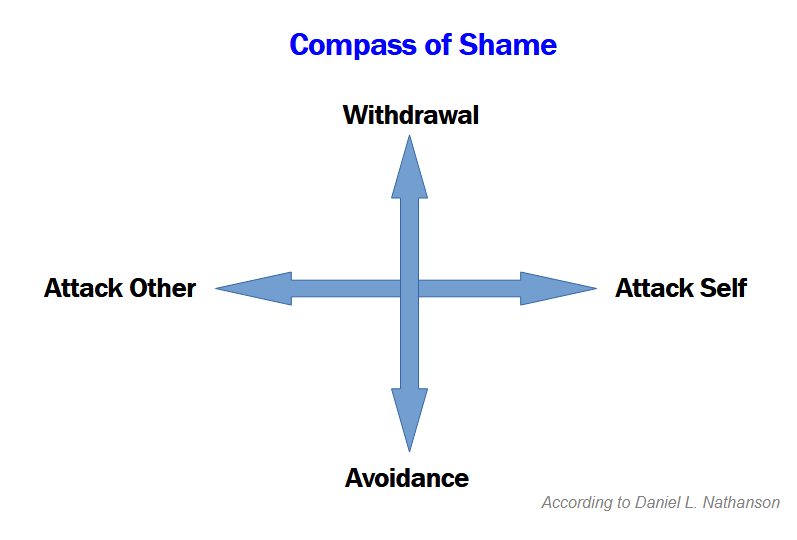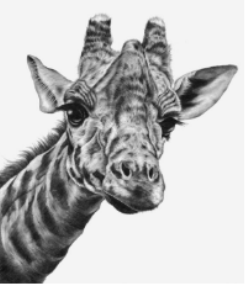Shame is probably the most feared emotion for anybody, as long as they have no possibility of connecting to the needs behind the emotion. This is why in passionate violent communication we have developed powerful coping mechanisms, to avoid feeling shame. It comes at the price of not evolving in our ability to learn to be together in a more life-serving way as human beings.
A powerful example of shame-avoiding through violent means is going to war, to kill or to be killed – rather than feeling shame or dealing with shame in a nonviolent way.
Another way of shame-avoiding through violent means is to kill other or to commit suicide. While we have maximum resistance to feel shame, the feeling might actually be the most powerful learning catalyst for peaceful coexistence that we have.
Please go to war rather than to feel shame

Listen to 45 seconds of a monologue by a master of passionate communication – Russian top jackal Margarita Simoyan – head of Russia Today:
“Shame and dishonor are more scary than death”.
Note that she suggests to deal with painful feelings by chosing a concrete action strategy. Killing for your country, for your loved ones will protect you from feeling shame.
This direct connection between feelings and strategies is the core element of passionate communication. Our feelings do not connect with needs, but with strategies. These actions are formulated on the basis of a feeling of what is right and wrong – on moral judgments. .
Violence is rooted in the feeling of shame
James Gilligan in his book “Violence” suggests that violence can better be treated as a public health problem. He has been leading an in-depth exploration on this by speaking to many convicted criminals about the background of their crimes. . (See chapter 5: Shame: The Emotions and Morality of Violence, pp. 103-136).
He identifies SHAME as the central emotion that leads people to violent behaviour. Some people will resort to physical violence to defend their dignity. It happens typically when someone has a sense of having no other options left. In so far as someone identifies with a nation or other group characteristics dignity works also on “group level” as the strongest motivator for violent behaviour.
So the challenge for societies and individuals is to find a more peaceful and live-serving way to handle the feelings of shame.
And for all of humanity we would be advancing into a more peaceful society if we could learn how to better help ourselves in dealing with shame – both in ourselves and in others.
Shame – at the core – is about the desire to be in a peaceful way with each other, when we have differences.
It is about being able to connect with both sides of a conflict in an embodied way, in a felt way. For example to connect with our deep desire for freedom, for feeling free and – at the same time – staying aware that we also have a need for care and responsibility (which can act as a sense of “not being free”).
This puzzle can feel an overwhelming task, when we are mostly unable to even deeply connect with one need we have, living at the surface of fast, running life.
Mrs. Simonyan, who is head of Russia Today and responsible for much of the propaganda content on Russian mainstream media, is investigating her sense of shame, not from a compassionate angle, but from a “how to solve this” angle – the fix-it jackal is greeting us.
She suggests that going to war is good, because shame is even worse. And those who run away from the military service, who leave the country, are chosing shame. You have the option to “betray” your country, but she warns – this is worse than death. “Think about it, people!”
She is not really looking up to the courage of those who chose shame above killing others. She wants to sacre people that shame awaits them, if they do not follow their leader Putin, and that shame is worse than death.
I am afraid for many Russians her view makes sense.

Jackal Compass of Shame
Some researchers have dedicated their life work to find out how humans deal with the emotion of shame. Among them I particularly like the work of Donald L. Nathanson, who developed a compass of shame.
The (Jackal) Shame Compass tells us the four main jackal strategies we chose to avoid the feeling of shame.
Background
When shame comes up in us, it wants to draw our attention to an aspect of ourselves in relation to others that we do not want to see. Much of it has to do with our desire to belong to a group of others. But this is such an unpleasant emotion, that we have learned to react to it in a split second and chose one of four major ways of avoiding to feel the emotion.
These ways are: attacking others, withdrawal, attack self, and avoidance.

Shame as a mindfulness bell
I believe we can become aware of the presence in us of one these four jackal strategies and use them as a mindfulness bell. When I see: I am feeling powerful or powerless. When I see: I am feeling right or wrong. I can use this moment as a mindfulness bell. Do it once a day.

We can stop and breathe, check what we are reacting to, use the process of compassionate communication to become curious and connect with our heart and the heart of another party involved in the concrete situation.
Gratitude to Liv
The first person who has made me aware of the catalyst possibilities of shame is Liv Larsson, one of my beloved teachers of compassion and living from the heart. In my “giraffe community” (my internal way of looking at a group of people I trust and feel comfortable with …) she is the person who most deeply investigated shame. She started off from her encounters with Marshall Rosenberg and the teachings of Daniel Nathanson. She wrote books on the topic and offered workshop on befriending and transforming shame.
Liv basically integrated Nathanson’s template with minor changes in terms of the jackal strategies. On the “attack plane” she substituted the blaming mechanism of “Who is wrong?”. But she then used this to ask what the needs are, behind the strategies.

And on the withdrawal and avoidance axis of the original compass of shame, she came up with the question “Who has the power?” Here she replaced the “avoidance” position with the “rebel”, who is pretending to him/herself that he or she is independent of others.

Dignity in Relationship
Dignity is probably one of the deepest needs all of humanity shares. To be seen and valued in truthfulness.
This is about how we meet this need for dignity in relation to others, to individuals, to groups, to the world – in one respect.
But is also about how we think that others and the world look upon us.
Dignity given is not always dignity received.
Matters become complex as we all have educated to misunderstand each other, by telling our need in an alienated way – as blame and judgments of others.
If you reply to what you think is a blame, then you are misled and caught in the maze.
Please stop and meditate about the potential for creating shame from the constant ways of miscommunicating in passionate, but ignorant ways.
Liv calls her tool the compass of needs, as she is interested in the needs behind the four possible jackal strategies.

In the case of Russia, the pundits on their media often portray themselves as victims of injustice and as unjustly alone against 50 other nations. Repeatedly people voice thoughts such as “They want to destroy us.” and similar enemy image narratives.

Short giraffe excursion – what I – as a giraffe – hear them say is: “We want justice and fairness, we want other nations to help and support us in our development and growth.”
To translate jackal expression inside of us – hearing requests instead of demands or blame – frees our heart and mind. We can meet our need for freedom and being compassion in this world, but do not have to do it. So we are all free to keep understanding messages as blame and to hear demands.
Back to the discussion of the compass and how this relates to the political requests in Russian state TV.
As far as my understanding and knowledge of these narratives goes, the pundits switch between “blame other” and “rebel” to avoid the feeling of shame. They mainly do not submit or go to blame self position.
In order to create connection it is important to attach the reactivity to some sort of reality. What are the people talking like observe, what is the trigger of the painful feelings?
Guessing the observation is a helpful activity.
If you hear blame from another, if you feel attacked, you will be unlikely to even be able to imagine what their strong feelings are stimulated by, because you are so busy trying to defend yourself from the so-called attack.
In the excerpt I would guess the source of irritation is that the “Nazis in Ukraine” are helped by so many countries around the world. 50 countries. The UN decision. Things like this.
As always, we can only guess what the needs behind a given strategy are. But having an observation can help a great deal to make more resonating guesses about their need and their request. And it is only when I able and willing to fully step into their world, their perceptions, that I can make a guess that I can feel resonate insides of me. This ability and willingness is truly essential to bring more peace and understanding to our world.
Keep remembering at all time that understanding deeply does not mean that you need to agree. Do not fall into a giving up position when you feel the beauty of the need of the other in your body. Remember – it is about understanding them and about them understanding you.
That is the place we want to keep in mind as a place of true encounter.
Compass of Interbeing
Shame can be called the “social emotion” – it is about our relationship with self, others, communities. It shows us that there is something not working on that level.
Avoiding the feelings also cements our difficulties on this plane. It hampers or blocks our possibility to grow and heal and transform. Arrested development and repetition of vicious cycles are likely consequences.
So I like to look at the compass of shame as a powerful tool to remind me of consciously looking at the unsolved puzzlez in my life, how to meet both my need and the needs of others.
Interbeing. Break the illusion of separation.
Meeting more than one need and moving on from there.
